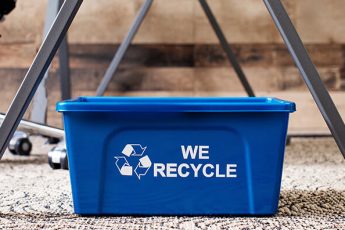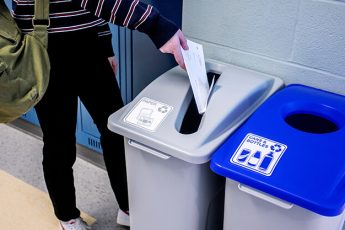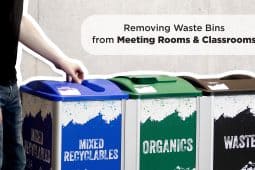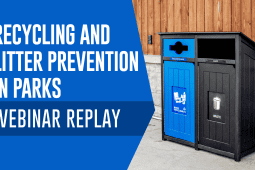To say that professional sports are popular is an understatement. There are very few entities in our society that gather, excite, and captivate people with the kind of fervor sparked by their favorite football, basketball, and hockey or baseball team.
This industry sports (see what I did there) some of the most immediately recognizable and loved brands on the market today, followed passionately by millions of people from all walks of life. These sporting associations are fully aware of this following and have started using their influence to green their sporting events and to teach their fans about the importance of protecting the environment.
Here are some highlights of what major sporting leagues and stadiums are doing to advance ecological stewardship.
Major League Baseball

- The MLB offsets energy used at all-star games by purchasing Green—e certified (Renewable Energy Certificates) or certified carbon offsets.
- Many stadiums have installed solar panels and replaced old bulbs with energy efficient lighting.
- Green Teams are assembled to travel through the crowd, directly collecting recyclable material from fans.
- Baseball stadiums have begun collecting food waste during games, dramatically cutting down on waste.
- MLB staff and players (including their families) ride in hybrid vehicles to and from all-star games.
- A minimum of 30% post-consumer content can be found in most paper products purchased for All-Star events (tickets, invitations, programs, etc.).
- Public washrooms in many stadiums have switched over to toilet paper and paper towels made from 100% post-consumer content.
- Compostable, bio-based containers have been used by concession stands at All-Star games.
- Used grease has been collected from concession stands and kitchens to be recycled in biofuel.
- The MLB have been purchasing Water Restoration Credits from Bonneville Environmental Foundation to offset the thousands of gallons of water consumed and various events.
National Basketball Association

- The NBA partnered with the National Resources Defence Council (NRDC) to help hit their sustainability targets through recycling & conservation.
- Ongoing purchase of renewable energy credits and carbon offsets to balance power consumed at the All-Star Games.
- Expanding recycling services in facilities used in All-Star events.
- Avoiding potentially harmful polyvinyl chloride (PVC) plastics in the production of banners.
- Showcasing the use of electric vehicles, with solar panels powering interior accessories.
- The NBA Green program, in partnership with the Green Sports Alliance is currently using its influence to generate funds and awareness for environmental protection.
National Hockey League
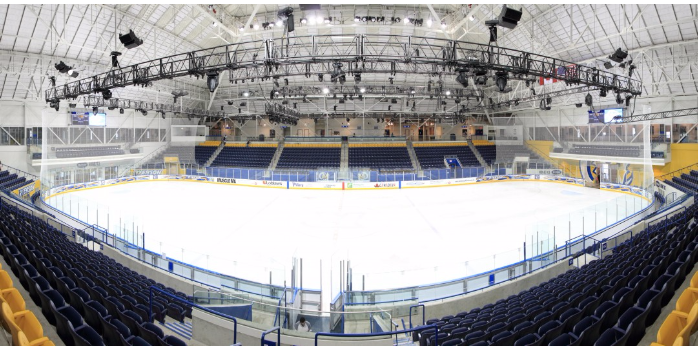
- Decreasing transportation needs at sporting venues by hosting the majority of NHL personnel at hotels within walking distance of arenas
- Media Guides and Year-End Review packets were made available only online, eliminating paper waste
- Printing tickets on recycled stock.
- Purchasing Green-e certified carbon offsets for stadium energy use
- Eliminating single-use plastic bags and replacing them with 40,000 free reusable bags at merchandise stands
- Recycling all cardboard, bottles, and cans inside the stadium
- Coordinating the pickup and distribution of prepared but unsold concession food to local programs all over North America.
- Installing recycling receptacles next to each trash can on streets surrounding stadium to help alleviate amounts of litter during games.
- Collecting recyclables at tailgating parties
- Offering free public transit passes by the Port Authority of Allegheny County (paid for by sponsor Pepsi MAX) to fans traveling to the game
The National Football League
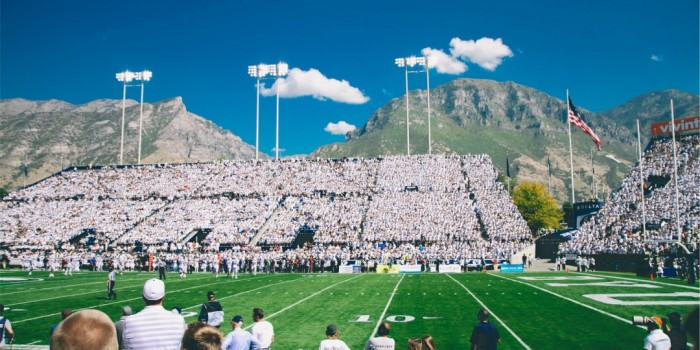
- In each Super Bowl host community, the NFL works with local partners to oversee a variety of sustainability projects.
- The Super Bowl has an environmental program in place for the event which focuses on:
- Solid waste management
- Material use
- Food recovery
- Sporting equipment donations
- Reducing greenhouse gasses
- Stadiums, media centers, and area hotels are all subject to a comprehensive waste management program.
- Prepared food that goes unused is donated to local soup kitchens, shelters, and other groups that feed people in need.
- Reusable items, building materials, office supplies, and decorations are recovered donated to local non-profits.
- To offset greenhouse gas emissions, thousands of trees are planted each year in host communities.
- NFL’s headquarters is LEED certified.
- Football teams have been getting involved with sustainability efforts including waste reduction, greening their supply chains, and creating green spaces in their communities.
- Teams have also partnered with the Environmental Protection Agency
- Some NFL teams also offset 100% of the energy used during game days at their stadiums throughout the year.
When it comes to green initiatives and sustainability the Major Sporting Leagues really bring their A-Game. Their impressive commitment to reducing their impact while getting their fans to do the same is an inspiration for using your influence to make positive changes.
Recycling, Renewable Energy, and Education completes the sustainability hat trick in which we are all winners.
Sources
http://www.nrdc.org/greenbusiness/guides/sports/files/Game-Changer-report.pdf
http://www.nfl.com/news/story/09000d5d8205a0e7/printable/nfl-green
http://ensia.com/voices/can-sports-make-sustainability-mainstream/

